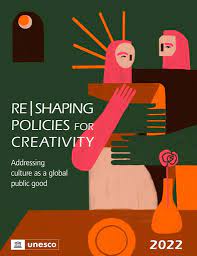Film critics, the individuals tasked with evaluating and analyzing danatoto , play a complex and influential role in the world of cinema. They are the bridge between the filmmakers and the audience, offering their insights, opinions, and perspectives on the films that grace the big screen. However, the role of film critics is not merely that of observers; it’s a dynamic interplay between shaping and reflecting public opinion. In this article, we will explore the multifaceted role of film critics and their impact on the film industry and cultural commentary.
Interpreting Cinematic Artistry
Film critics are often seen as interpreters of cinematic artistry. They dive deep into a movie’s storytelling, aesthetics, and overall impact. Their analyses go beyond simple plot summaries and delve into the nuances of cinematography, acting, direction, and thematic elements. By doing so, they provide a richer understanding of the film, helping the audience see beyond the surface.
Shaping Expectations and Choices
One of the primary ways film critics shape public opinion is by influencing moviegoers’ expectations and choices. Positive reviews can generate buzz and anticipation for a film, while negative reviews might deter potential viewers. Critics can help guide audiences toward films that align with their tastes, ensuring they have a more satisfying cinematic experience.
Influencing Film Industry Decisions
Film critics also wield considerable influence within the film industry itself. Positive reviews can boost a movie’s box office performance and its chances at awards season, attracting attention from studios, producers, and talent. Conversely, negative reviews can lead to reevaluations, re-edits, or even shifts in marketing strategies. In this way, critics can indirectly shape the content and direction of the industry.
Cultural Commentary and Relevance
Film criticism extends beyond individual reviews; it contributes to the broader cultural commentary of our time. Critics often examine how a film relates to contemporary issues, societal trends, and cultural values. Through their analysis, they shed light on the messages and ideas that permeate cinema, helping audiences connect the dots between movies and the world around them.
Balancing Objectivity and Subjectivity
A central challenge for film critics is the balance between objectivity and subjectivity. While critics are expected to provide an objective evaluation of a film’s technical aspects, they also inject their subjective perspectives into their reviews. This duality allows them to connect with the audience on a personal level while maintaining their critical integrity.
The Power of Critique Influence
Critique influence is a significant aspect of a film critic’s role. A well-written, thought-provoking review can shape the way audiences perceive a film. Critics are responsible for highlighting both the strengths and weaknesses of a movie, guiding viewers to form a more informed judgment. They provide a valuable service by helping people sift through the vast array of films available, ultimately enhancing their movie-watching experiences.
The Role of Fan and Audience Reviews
In today’s digital age, the influence of film critics is increasingly being complemented, and sometimes challenged, by fan and audience reviews. Platforms like Rotten Tomatoes and IMDb allow the general public to rate and review films. These reviews provide a democratic approach to film criticism, enabling diverse perspectives and influencing public opinion. However, film critics continue to hold a unique position due to their expertise and in-depth analysis.
The Critics’ Impact on Filmmaking
The influence of film critics can also extend to the realm of filmmaking itself. Filmmakers often pay attention to critics’ reviews and feedback, seeking to refine their craft and deliver more engaging and thought-provoking stories. Some filmmakers embrace criticism as a means of growth and learning, using it to enhance their work and push artistic boundaries.
Cinematic Diversity and Representation
Film critics have an important role in advocating for cinematic diversity and representation. They can use their platforms to draw attention to the need for more diverse voices and perspectives in the industry. Their critiques can influence the allocation of resources and opportunities, pushing for increased inclusivity in the world of cinema.
Conclusion
Film critics are more than mere reviewers; they are interpreters, influencers, and cultural commentators. They play a pivotal role in shaping and reflecting public opinion about movies. As they continue to navigate the fine line between objectivity and subjectivity, they provide audiences with a deeper understanding of cinematic artistry, guide their film choices, and contribute to the broader discourse on culture and society. In a world of ever-evolving cinema, the role of film critics remains an essential component of the industry’s success and the enrichment of our movie-watching experiences.









